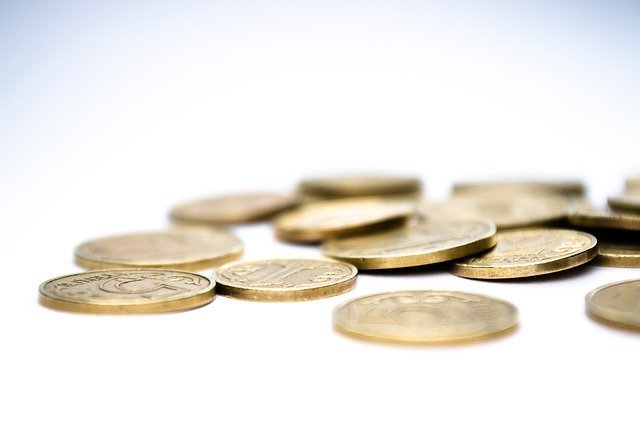Personal Finance
All The Personal Finance Information You’re Going To Need
Just continue on to the article below and learn what to do to improve your financial situation. Once you learn what you can about your finances, you can greatly improve your situation.
Do not waste your money on projects that claim to make you rich overnight. Most of these products are scams. Learn as much as you can, but taking action is more important that spending all your money on books and courses; taking action is the only way you will actually make a profit.
Keep a small envelope with you on your person. Use it to preserve any receipts and business cards you receive. You might need these receipts later to compare against your credit card’s monthly statements in the small chance that you are double charge or other error shows up.
Be positive that you can truly trust the person that you are entrusting your life savings with. Never deal with a broker who is less than completely honest and forthcoming with you, and look for sterling references from other clients. Your own experience can help you to spot a shoddy broker.
Do not believe that credit repair has the guaranteed success to improve your history. A lot of agencies will make general claims about their ability to improve your credit. This is not at all accurate since what is affecting your credit score is affected to how another individual with credit issues. To claim that they can clear your credit completely is definitely a fraud and no one should make this promise.
Avoid getting into further debt to save your finances. Almost everyone has a home mortgage or loans for educational purposes, but every effort should be made to eliminate dangerous credit card debt. The less money you borrow, the less you will waste in interest and fees.
Try to avoid debt when you can so your personal finances can benefit. Some debt is normal, like student loans and mortgages, but try your best to avoid bad debt such as credit cards. You will lose less money to interest and possible fees if you borrow less.
Your credit score might even go down as you work to increase it. This should be temporary and isn’t a sign that you have caused more damage to it. Your credit score will rise as time goes on if you continue to add quality information.
Be mindful of IRS income tax deadlines.If you owe the government money, then you may want to file your taxes closer to the April 15 due date.
Rather than using a credit card that is close to being maxed out, use two or more credit cards. When you’re paying towards two separate payments, your interest payments won’t be as high as they would if you were paying off a credit card that’s been maxed out. And besides, this will not damage your credit score as much, and even help you build it if you can manage wisely your two credit cards.
Having a concrete plan is effective as a motivational tool, as it provides you with a purpose to work hard to prevent overspending.
Holding a yard or garage sale is a great way to get rid of items that you no longer use and generate some additional income. If one is also good at working with people they can talk neighbors into letting them sell some of their old items for a nominal fee. With a little creativity, your sale can be the talk of the town!
The payments on two smaller balances can be lower than a single card that has reached its limit.
Replace incandescent bulbs with more efficient compact fluorescent light bulbs. Replacing your bulbs will cost more initially, but you will see greater savings in the long run and do your part to help the environment. CFL bulbs typically last longer than regular light bulbs. You will end up purchasing fewer bulbs and therefore saving money.
A number of credit card companies give rewards or discounted flight tickets to be redeemed from purchases for no additional charge. Your frequent flier miles will constantly increase and are redeemable at some hotels for room discounts or airlines across the world.
You will need to pay off your debits before you can repair your credit. The best way to accomplish that goal is to repay credit cards and other loans, which may require some sacrifices. Reduce your food bill by eating at home more and going out less on weekends. Bringing food from home while at work and not going out on weekends can help save lots of money for anyone who is looking to make a serious effort to restore their credit.
If a person ends up with many one dollar bills over the course of a month, use them in some fun ways to increase your income. Use them to buy some lottery tickets that can possibly win you the jackpot.
Not using a credit card at all is one way to stay out of debt and to protect your personal finances. Take a step back and think before making purchases on your credit card. Do the math and figure out exactly the length of time it will take you to pay it off. Unless it’s an essential item, don’t buy more on credit than you can afford to pay off at the end of the month.
To guarantee that you are not late on any payments set up an automatic monthly bill pay through your bank. Even if you are unable to pay your credit card balance in full, making the minimum payments before the due dates gives your credit report positive data. By setting up an automatic debit from your bank account, you can ensure that your payments won’t be late, and you can pay a little extra each month if you are able.
Take advantage of online banking alert services offered by your institution. Most banks have customer-friendly programs that offer alerts via text message or email when key events occur in your account. Withdrawal alerts can protect you from identity fraud and theft and low balance alerts can save you from overdraft fees.

Almost everyone makes a mistake with their finances.This trick can only be used by someone who keep a steady balance and avoid overdrafts.
Create a savings account set aside for emergencies. You can use it to pay for a goal, like saving for college, or paying off your credit card.
If you’re living paycheck-to-paycheck, it can be helpful to have an overdraft program. This minimal fee may save you from a lot of money on overdraft fees in the future.
You may want to talk with a friend or family member that either currently works in, or did in the past, a financial position, so they can teach you how to manage your finances from their personal experiences. If one does not know anyone in the financial profession, then they should talk to someone that they know has a good handle on their finances and their budget.
Keep all the important tax related documents together in an active file. Keep all your important documents such as receipts or insurance papers in one file so you can find them easily.
One of the most important aspects of your FICO score is the balance of your credit cards. Your score may be lower if your credit cards have a high balance. As you start to pay off your balances, your credit score will start to rise. Make an effort to have the card balance at no more than 20 percent.
Buy generic brand instead of national brands. A lot of the brand name price tag stems from the cost to advertise and market those products. There is often no change in how the product tastes or its quality.
Depending on the situation, it may be best to allow your money to sit on one exchange for longer than you might think. However, as with all strategies, use this approach with restraint and wisdom. It is imperative that you know when to quit; once you have become prosperous on a trade, keep a close eye on it and cash out before things take a turn.
Think carefully about what your feelings toward money. You can then keep going and making positive feelings later.
If you stick to only using the ATM machine at your bank or a local credit union, you can save quite a bit of money. Financial institutions have heavy monthly and per-transaction fees if you use other ATMs, and those can build up fast.
Avoiding debt wherever possible is a great way to be financially stable. A loan is appropriate for buying a car or a house. You shouldn’t rely on the use of credit daily though.
Make a super-large wall chart that shows all of your minimums due and due dates. This way, you will still make all of your payments on time, even if you do not receive an actual paper bill in the mail. It will also cut down on late fees and make budgeting easier.
Make sure that you annually rebalance your portfolio on a yearly basis. Re-balancing your portfolio gets your investments in line with your situation. It also let you to track your investments.
Write down each cent you spend for an extended amount of time. When you fully understand where your money is going, you have a better idea of where you can cut costs so that your finances are better overall.
If you dislike the fraction of your pay left over after the bills are taken care of, you can still save by cutting back on non-essential items, instead of by cutting out expenditures entirely. For instance, do not try eliminating dining out completely.
If you find you have extra money at the end of the month, save it instead of spending it. To keep this from happening to you, you should keep to your financial plan.
Even the small things you pay attention to can make a difference in your financial status. Instead of buying a cup of coffee, brew your own at home or at work. This simple change can save you $25 or more every week. Ride the cost of you daily commute. You may be able to save a significant amount of money with this change. Those are definitely worth more important than a coffeehouse brew.
Add some foreign intrigue to your investments. International investments can be made through a no load mutual account, it will give you what you need and also lessen your cost of research.
Since you are more aware of how to cope with finances, money should not be such a big stressor. Use the tips and tricks you just read so that you can improve your finances. Keep learning all that you can to continue to succeed. This marks the start of a new life that includes less debt and greater savings. Hope you enjoy it!
Have money deducted from each paycheck you receive. Keep it in a savings account that serves as an emergency fund. Having this safety stash can help you in case you lose your job, get an unforeseen illness or some other disaster. In addition, automatically saving money will make it easier to actually save.


